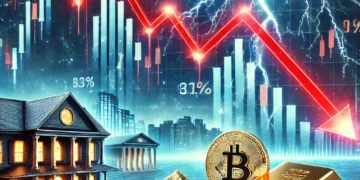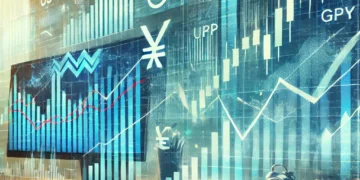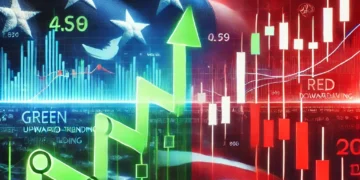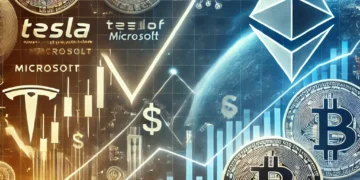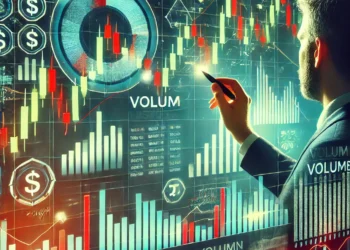The Future of Forex Trading: Navigating Technological and Geopolitical Seas
The foreign exchange (Forex) market, the world’s largest financial marketplace, is at a pivotal juncture, shaped by rapid technological advancements and significant geopolitical shifts. These forces are not only transforming the mechanics of trading but also redefining the global economic landscape in which Forex operates. This essay explores the various dimensions of these changes, their implications for Forex trading, and provides a detailed summary of the evolving nature of the market.
Technological Advancements Impacting Forex Trading
1. Algorithmic Trading:
- Definition: The use of computer algorithms to execute a large volume of orders at extremely fast speeds.
- Impact: Increases market efficiency and liquidity but also raises the potential for flash crashes due to automated trading errors.
2. Blockchain and Cryptocurrencies:
- Definition: Blockchain technology offers a decentralized ledger system, while cryptocurrencies introduce new digital assets for trading.
- Impact: Promises to enhance transaction security and transparency but introduces volatility and regulatory challenges.
3. Artificial Intelligence (AI) and Machine Learning:
- Definition: AI and machine learning entail the use of computer systems to analyze market data and make predictions or trading decisions.
- Impact: Can significantly improve market analysis and prediction accuracy but may lead to overreliance on automated systems.
4. Mobile Trading:
- Definition: The ability to trade Forex through smartphones and tablets.
- Impact: Improves accessibility for traders but raises concerns over security and the quality of decision-making on the go.
5. High-Frequency Trading (HFT):
- Definition: A form of algorithmic trading that executes orders at extremely high speeds to capitalize on very small price movements.
- Impact: Increases market liquidity but can exacerbate market volatility and create an uneven playing field.
Geopolitical Shifts Influencing Forex Trading
1. Global Trade Agreements and Disputes:
- Changes in trade policies and tariffs can significantly impact currency values as they alter the flow of goods and services between countries.
2. Political Instability and Economic Sanctions:
- Political events, coups, and sanctions can lead to rapid changes in currency valuations, reflecting the perceived economic stability of a nation.
3. Shifts in Monetary Policy:
- Central banks’ decisions on interest rates and monetary supply have a direct impact on currency values, influenced by the broader geopolitical climate.
4. Emergence of New Economic Powers:
- The rise of economies like China and India introduces new currencies to Forex trading and shifts the focus of global economic power.
5. Environmental Policies and Climate Change:
- National and international environmental policies can affect economic activity and, consequently, Forex markets, as countries invest in green technologies and adjust to climate change impacts.
The future of Forex trading is being sculpted by the dual forces of technological innovation and geopolitical evolution. Algorithmic trading, blockchain technologies, AI, mobile trading platforms, and high-frequency trading are revolutionizing how trades are executed and how markets are analyzed. These technologies promise greater efficiency, accessibility, and insight, yet they also pose challenges, including potential security vulnerabilities, market volatility, and ethical considerations regarding automated trading.
Simultaneously, geopolitical shifts such as changing trade policies, political instability, adjustments in monetary policy, the emergence of new economic powers, and the impact of environmental policies are reshaping the economic foundations of Forex trading. These shifts can alter currency valuations overnight and redefine trading strategies, requiring traders to stay informed and adaptable.
In conclusion, as we look toward the future of Forex trading, it’s clear that the interplay between technological advancements and geopolitical developments will continue to define the landscape. Traders and institutions must navigate these waters with a keen eye on both the opportunities and challenges they present. Success in this evolving market will depend on the ability to adapt to rapid changes, leverage new technologies responsibly, and understand the complex global forces at play. The future of Forex trading is not just about predicting currency movements but about understanding the broader context in which these changes occur, ensuring that strategies are both innovative and grounded in a comprehensive view of global market dynamics.


